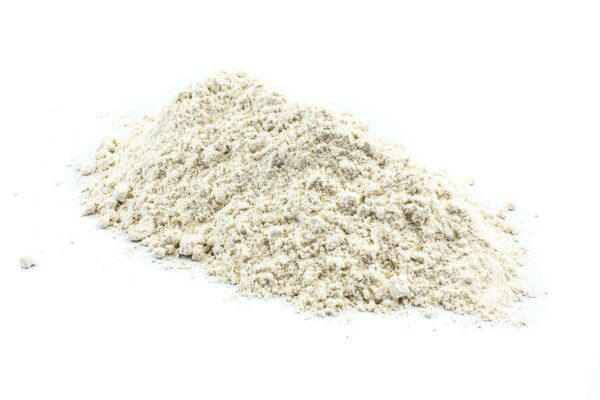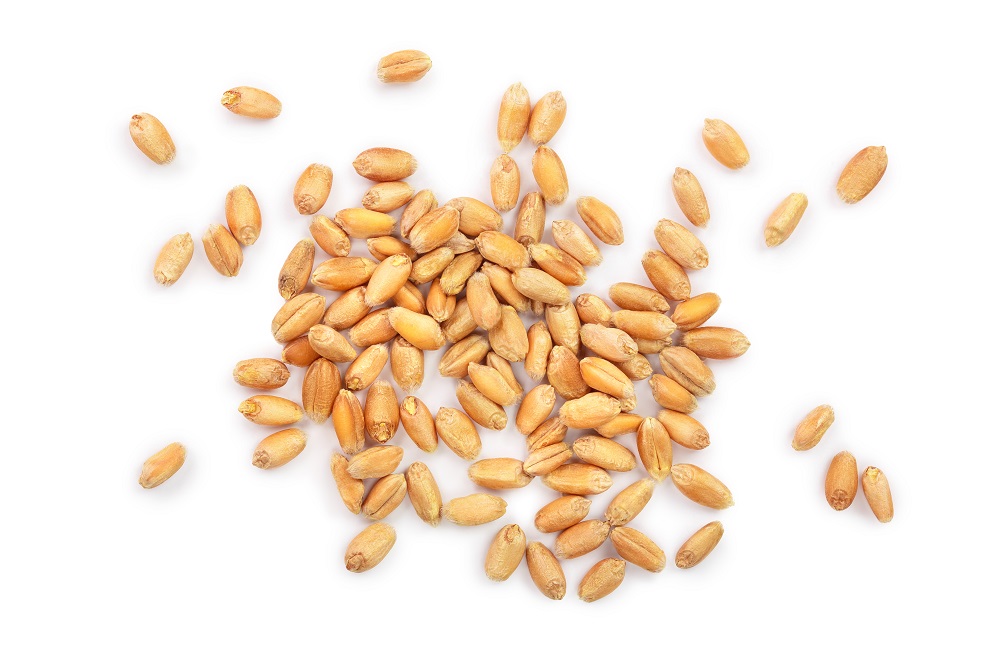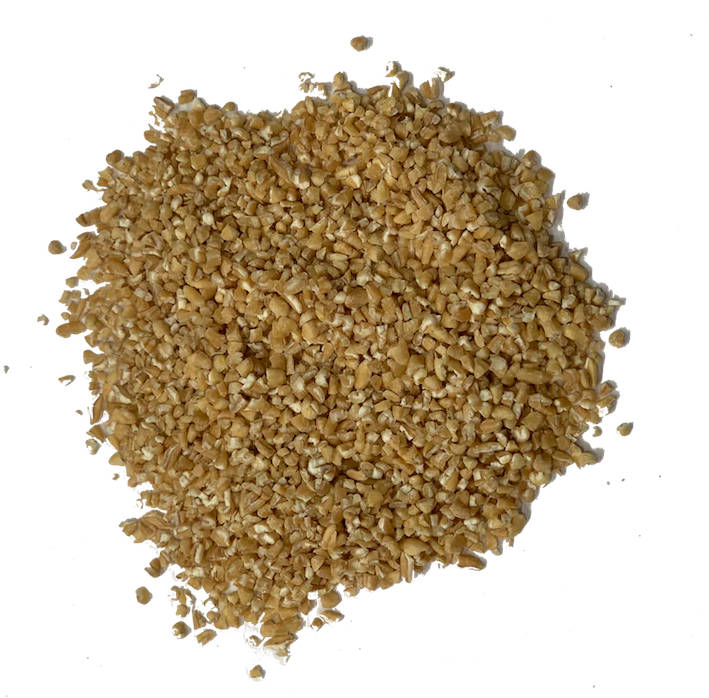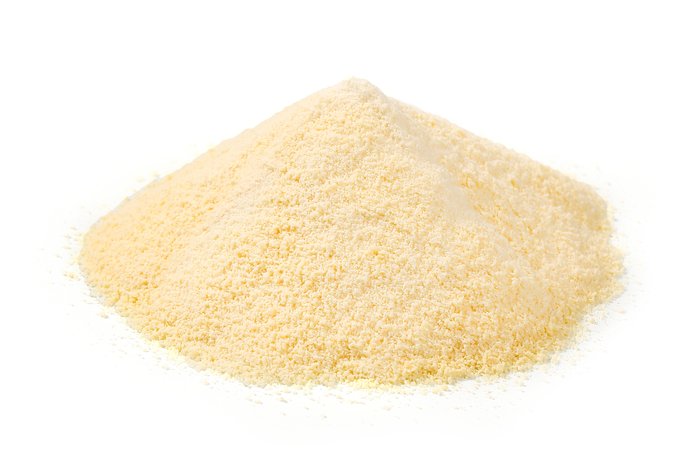Dinkel / Spelt
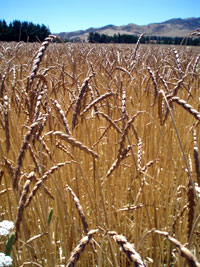
Dinkel (triticum spelta) has been grown on the farm for some 20 years, in fact Milmore Downs pioneered this crop and its demanding processing requirements. The old variety used ensures excellent quality. As an ancient grain it relates to wheat. It was previously widely grown in Europe but due to its low yield and difficult growing characteristics it has mostly been replaced by modern wheat.
Although Dinkel contains as much gluten as wheat its gluten (protein) molecule has a different composition, which is why many people who are allergic to wheat can eat Dinkel. If you have a wheat allergy though you may or may not be able to eat Dinkel. Just try a small amount first.
Dinkel flour is a wonderful easily digestible product having a pleasant nutty taste. It can be used for bread but also for the full range of baking (cakes and biscuits, scones, pizza bases...) in exactly the same way as ordinary wheat flour though the bread dough may take longer to rise.
Flakes need to breath, please open bags directly after you got them.
All spelt / Dinkel products are BioGro* certified.
Nutritional information
|
Nutrients (mean values) |
AVG Quantity/100g |
| Energy | 338 cal |
| Protein | 11.7 g |
|
Fat |
2.4 g |
|
Carbohydrates |
70 g 0.4 g |
|
dietary fibre |
11.0 g |
|
potassium |
0.4 g |
Dinkel / Spelt Wholemeal Flour
It has a slightly nutty, sweet flavour and a lighter texture compared to regular whole wheat flour. Spelt wholemeal flour is prized for its versatility in baking, suitable for breads, pastries, and pasta, while being easier to digest for some people due to its unique gluten structure. It’s also rich in essential nutrients like protein, vitamins, and minerals.
Organic Dinkel/Spelt White Flour with a touch of bran
Our premium organic spelt white flour retains a hint of bran for added fibre and nutrition while maintaining a fine, light texture. With its mild, slightly nutty flavour, this flour is perfect for baking soft breads, pastries, and pancakes. Naturally high in protein and easier to digest than modern wheat, it's an excellent choice for wholesome, flavourful baking.
Ideal for anyone looking for a nutritious alternative to standard white flour.
Whole Dinkel / Spelt Grain
Whole spelt (or dinkel) grains are the intact kernels of the ancient spelt variety, a close relative of wheat. These grains retain their outer bran, germ, and endosperm, making them highly nutritious and rich in fibre, protein, vitamins (such as B-complex), and minerals like magnesium and phosphorus. Spelt grains have a slightly nutty, sweet flavour and a chewy texture when cooked.
They are versatile and can be used in a variety of dishes, such as salads, soups, and stews, or as a hearty alternative to rice or quinoa. Spelt grains can also be soaked and sprouted for added nutritional benefits or ground into flour for baking breads, pastries, and pasta. Their robust flavour and nutritional profile make them a popular choice in both traditional and modern recipes.
Kibbled Dinkel / Spelt
Kibbled Dinkel (spelt) is a form of cracked spelt grain, where whole spelt kernels are coarsely crushed to create small, irregular pieces. This process retains the nutritional value of the whole grain, including fibre, protein, and essential vitamins. Kibbled spelt has a slightly nutty flavour and a chewy texture, making it a versatile ingredient in various dishes.
It can be used in a variety of ways, such as in soups, stews, salads, or as a side dish similar to rice or couscous. Kibbled spelt can also be added to baked goods like bread and crackers for added texture and a hearty, rustic appeal. It is a great option for people seeking a nutritious, whole grain alternative in their meals while enjoying the benefits of spelt's easier digestibility compared to modern wheat.
Buy Our Grain Products
We grow, harvest and process several varieties, all of which are available for purchase from this website.
No products produced by Milmore Downs are fortified with folic acid. (From mid-August 2023, NON-ORGANIC wheat flour suitable for bread making, produced or sold in New Zealand, must be fortified with folic acid.)
